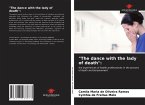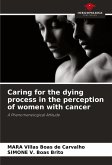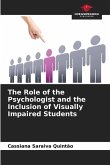Death is inherent to living beings. In contemporary Western society, however, it is banned, silenced and sometimes denied. For healthcare professionals, it is routine, due to the high frequency with which it occurs in their workplaces, and difficult to deal with. Failure to understand this phenomenon can cause a certain amount of suffering for individuals who are in a state of great vulnerability, the dying, as well as for their families, due to the possibility of losing a loved one. There is a need to provide comfort to these individuals at this difficult time, and to help them deal with the end of life and the dying process. It is clear that many professionals are not prepared to deal with this issue and that this can cause emotional instability in them, making it something quite challenging in the profession. Faced with this reality, this book presents a study that aims to understand the concept of death and the possible inclusion of the discipline of Thanatology in the working reality of hospital psychologists in public institutions in Fortaleza.
Bitte wählen Sie Ihr Anliegen aus.
Rechnungen
Retourenschein anfordern
Bestellstatus
Storno








